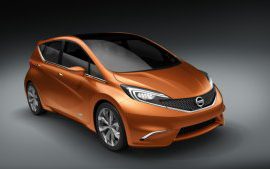After over 85 years of localized production in Australia, Ford Australia is to end its domestic manufacturing activities. Citing poor income and the increasingly high cost of building its vehicles in Australia, Ford Australia chief executive Bob Graziano told reporters that Ford would cease to manufacture cars in Australia from 2016.
Australia is one of the world’s most competitive car markets, with over 65 brands on offer and slightly more than 1 million vehicles sold per year. With imports subject to heavy taxation, many Australians opt to buy vehicles that are produced locally. Ford, along with Holden and Toyota, is one of Australia’s largest vehicle producers.
Despite the heavy import taxes on high-end vehicles, many Australians purchase mass market imported vehicles from Japan and Korea. Due to the country’s incredible currency growth, local manufacturers have struggled to compete with overseas firms on price.
Ford’s move away from Australian manufacturing is purely financial, with the well-known automotive company reporting losses of £91 million in the recent financial year. The company has lost over $600 million AUD over the past five years due to the increase in Australian wages and its effect on the manufacturing process.
Mr Graziano reported that Ford Australia’s manufacturing costs were twice those of the company’s European division, and four times those of its Asian operation. 1,200 workers would lose their jobs in the manufacturing cutbacks, which will take effect by the start of 2016.
Due to the large cutbacks, employees at rival car manufacturers Holden and Toyota expressed concern for their job stability. However, the Australian government has confirmed that both Holden and Toyota will maintain their manufacturing presence in Australia and that no major job cuts will take place.
For a company with a history of Australian manufacturing that dates back to 1925 and the Model T, it’s a sad day indeed. However, with Australia’s rising wages and strong dollar making domestic production difficult, Ford’s decision to end its auto manufacturing activities in Australia is financially sensible.




